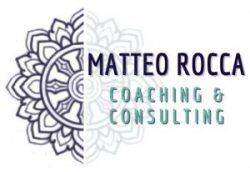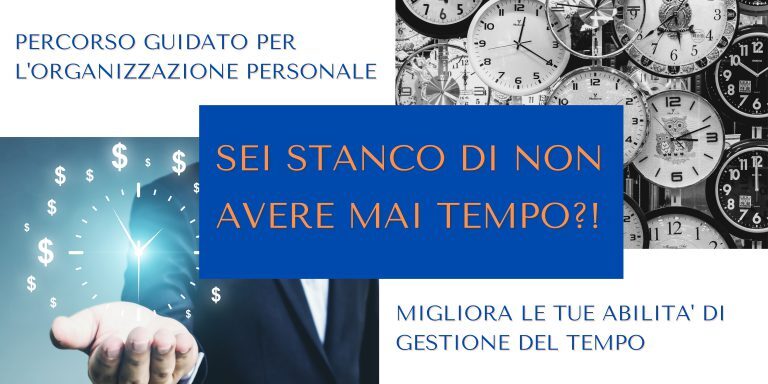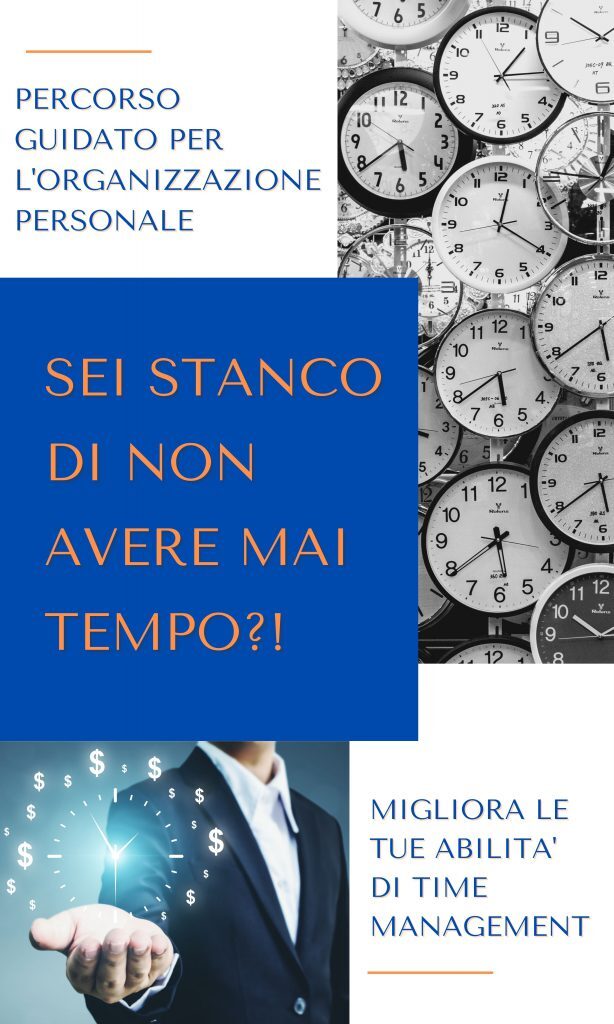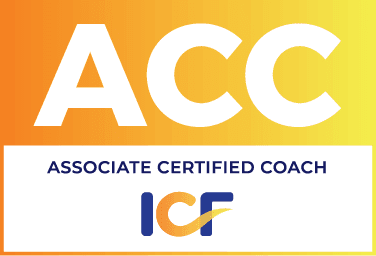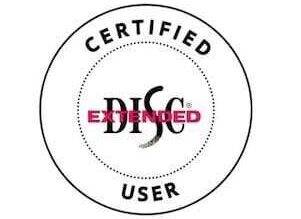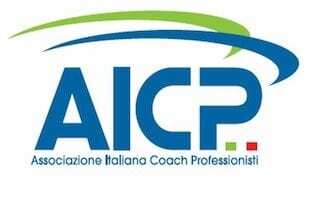
THE CODE OF ETHICS ACCORDING TO ICF
ICF Global has formalized that from 01/01/2020 the new code of conduct becomes operational, which you can view at this link. A transition period will be managed and moments of illustration of the content will be organized in the first quarter of 2020 by the ethics committee of ICF Italia.
Preamble
ICF is committed to maintaining and promoting excellence in coaching. Therefore ICF expects all its members and credentialed coaches (coaches, coach mentors, coach supervisors, coach trainers or coaching students) to adhere to the elements and principles of ethical conduct: be competent and integrate the ICF Core Competencies effectively in their daily work .
In line with the core values of the ICF and its definition of coaching, the Code of Conduct is constructed to provide appropriate guidance, accountability and standards of conduct applicable to all ICF members and credential holders, who commit to abide by the following ICF Code of Conduct.
First part: Definitions
Coaching: Coaching is a partnership with clients through a thought-provoking creative process inspiring them to maximize their personal and professional potential.
ICF Coach: An ICF coach agrees to use the ICF Core Competencies and undertakes to abide by and be accountable to the ICF Code of Conduct.
Professional coaching relationship: A professional coaching relationship exists when the coaching involves a collaborative agreement (including contracts) that defines the responsibilities of each party.
Roles in the coaching relationship: It is often necessary to distinguish between the client and the sponsor in order to clarify the roles in the coaching relationship. In most cases, customer and principal are the same person and therefore both are referred to as customer. For identification purposes, however, the ICF defines these roles as follows:
– Client: The client (or coachee) is the person(s) who receives the coaching.
– Client: The client (or sponsor) is the entity (including its representatives) who pays and/or organizes the coaching services that are provided.
In all cases, coaching engagement agreements must clearly establish the rights, roles and responsibilities of both the client and the client if they are different entities.
– Learner: Learner is someone who participates in a coaching training program or is working with a supervisor or mentor coach in order to learn the coaching process and/or increase and develop their coaching skills.
– Conflict of interest: a situation in which a coach has sufficient private or personal interest to influence the scope of his duties as a coach and as a professional.
Part Two: The ICF Standards of Ethical Conduct
Section 1: Professional Conduct in General
Me, as a coach:
1) I comply with the ICF Code of Ethical Conduct in all my interactions, including coaching trainings and activities such as mentoring and supervising coaches.
2) I agree to take appropriate action with the coach, trainer, or mentor coach and/or will contact ICF to report any violations or possible infractions as soon as I become aware of them, whether involving myself or others.
3) I communicate and create awareness to all those who should be aware, including organizations, employees, clients and coaches, of the responsibilities established by this Code.
4) I refrain from unlawful discrimination in my professional activities, such as age, race, gender orientation, ethnicity, sexual orientation, religion, nationality or disability.
5) I express myself truthfully and accurately verbally and in writing about what I offer as a coach, the coaching profession or the ICF.
6) I accurately define my coaching qualifications, as well as my expertise, experience, education, certifications and ICF credentials
7) I credit and acknowledge the efforts and contributions of others and I only credit myself with my materials. I understand that violating this standard leaves me open to legal action from third parties.
8) I always strive to acknowledge my own personal issues that may harm, hinder or interfere with my performance or my professional coaching relationships. I promptly seek appropriate professional assistance and determine actions to be taken, including whether it is appropriate for me to suspend or terminate my coaching relationship(s) if required by fact or circumstance.
9) I acknowledge that the Code of Conduct applies to my relationships with coaching clients, coachees, students, those I mentor or supervise.
10) I conduct and communicate my research competently, honestly and in compliance with recognized scientific standards and applicable guidelines. My research will be done with appropriate consent and approval from those involved, in an approach that protects participants from any potential harm. All research activities will be in compliance with the applicable legislation of the country in which they are conducted.
11) I maintain, archive and eliminate all documentation, including documents and electronic communications, created during my coaching work in order to promote confidentiality, security and privacy, in compliance with applicable laws and agreements made
12) I use ICF member contact information (email addresses, telephone numbers, etc.) only in the manner and to the extent authorized by ICF.
Section 2: Conflicts of Interest
Me, as Coach:
13) I commit to being alert to any conflict or potential conflict of interest, I communicate such situations openly and if there is a conflict I offer to remove myself.
14) Clarify roles for internal coaches, setting boundaries and reviewing with stakeholders any conflicts of interest that may arise between coaching and other company roles .
15) I inform my client and his client of all expected fees that I may pay to third parties or receive from third parties for that client’s introduction.
16) I honor a balanced coach/client relationship, regardless of the form of remuneration.
Section 3: Professional Conduct with Clients
Me, as a coach:
17) I truthfully communicate ethically to clients, prospective clients or clients about the potential value of the coaching process or of myself as a coach.
18) Prior to or at the start of the initial meeting, I carefully explain to my client and sponsor the nature of the coaching, the nature and limits of the confidentiality, the financial arrangements and all other terms of the coaching agreement and make every reasonable effort for them to be understood.
19) I establish a clear coaching agreement with my clients and patrons before starting the coaching relationship and I respect this agreement. The agreement will include roles, responsibilities and rights of all parties involved.
20) I am responsible and aware of clearly, appropriately and culturally sensitively defining the boundaries governing any interactions, physical or otherwise, that I may have with my clients or patrons.
21) I avoid any sexual or romantic relationships with active clients or clients or students, including those I mentor or supervise. Additionally, I will be alert to the possibility of any sexual intimacy between involved parties, including my colleagues or assistants, and will take appropriate actions to manage the situation or cancel my involvement in order to make the work environment safe for everyone.
22) I respect the client’s right to end the coaching relationship at any time during the process, as provided in the agreement. I will have to be alert for signs that the value received from the client in the coaching relationship has changed.
23) I encourage the client or referrer to change if I feel the client or referrer could be better served by another coach or resource, and suggest that my client refer to other professionals when it seems appropriate or necessary.
Section 4: Confidentiality/Privacy
Me, as a coach:
24) I maintain the highest levels of confidentiality with respect to all customer and principal information, unless otherwise required by law.
25) I establish a clear agreement on how information about the coaching process will be exchanged between coach, client and client.
26) I have a clear agreement, acting as a coach, mentor coach, supervisor or coaching trainer, whether with clients and clients, as well as with students or those I am mentoring or supervising, with respect to the conditions under which confidentiality would not be respected ( eg illegal activity, following an order of the judiciary, or risk of
imminent or probable danger for oneself or others, etc.). I make sure that clients and clients, students and those I mentor or supervise give their voluntary and informed consent in writing regarding restrictions on confidentiality. Where I reasonably believe that any of the above circumstances apply, I will need to notify the appropriate authorities.
27) I require everyone who works with me in supporting me with my clients to adhere to the standards of the ICF Code of Conduct, Section 4 Number 26 Confidentiality/Privacy and any other sections of the ICF Code of Conduct as applicable.
Section 5: Continuous Development
Me, as a coach:
28) I am committed to developing my professional skills on an ongoing basis.
Part Three: ICF Ethical Commitment
As an ICF coach, I acknowledge and agree to honor my ethical and legal obligations to my coaching clients and patrons, my colleagues and the general public. I undertake to abide by the ICF Code of Conduct and to put these standards into practice with those for whom I act as a coach, teacher, mentor, supervisor.
If I violate this ethical commitment or any part of the ICF Code of Conduct, I agree that ICF, in its sole discretion, may hold me accountable for my conduct. I further agree that my liability to ICF, for any violation, may include penalties such as loss of my ICF associate status and/or my ICF credentials.
Approved by the ICF Board of Directors, June 2015
[translation by the ICF Italia Ethics Committee]
THE 11 KEY COMPETENCIES ACCORDING TO ICF (INTERNATIONAL COACHING FEDERATION)
ICF Global has formalized that it has reviewed the skills that a coach must be able to express, at different levels according to their credential level, and which will become operational during 2020 which you can view at this link. In the first quarter of 2020, moments of illustration of the content will be organized by representatives of ICF Italia.
LAYING THE FOUNDATIONS
1) Comply with ethical guidelines and professional standards – Understand coaching ethics and standards and be able to apply them appropriately in all coaching situations.
- Understands and demonstrates with his behavior the rules of professional conduct established by the ICF (see section III of the Code of Ethics)
- Understands and follows the rules established by the Code of Ethics
- Clearly communicate the differences between coaching, counseling, psychotherapy and other supportive professions
- Suggests the client, if necessary, to refer to another support professional, knowing when it is necessary and what resources exist
2) Establishing the coaching agreement – Ability to understand what is needed in the specific coaching interaction and to agree with the prospective and new client the terms of the coaching process and relationship
- Understands and effectively illustrates to the client the specific guidelines and parameters of the coaching relationship (e.g. logistics, fees, activity schedule, any other relevant details)
- Agree with the client what is appropriate within the relationship and what is not, what is and is not offered, and mutual responsibilities
- Find out if there is effective harmony between your coaching method and the needs of the potential client
CO-CREATE THE RELATIONSHIP
3) Establish trust and closeness with the client – Ability to create a safe and supportive environment that engenders ongoing mutual respect and trust
- Demonstrates a sincere interest in the client’s well-being and future
- Always demonstrate personal integrity, honesty and sincerity
- Makes clear agreements and keeps promises
- Shows respect for the client’s perceptions, his learning style, his way of being
- Offers ongoing support and encourages new client behaviors and actions, including those that involve risk-taking and fear of failure
- Asks for authorization to explore new sensitive and delicate areas with the client
4) Coaching Presence – Ability to be fully aware and create a spontaneous relationship with the client, employing an open, flexible and confident style
- He is present and flexible during the coaching process, adapting to the situation
- Accesses one’s intuition, and trusts one’s inner sensations, “follows one’s belly”
- He is open to not knowing and taking risks
- He sees different ways of working with the client and chooses at the moment what is most effective
- Effectively use humor to create lightness and energy
- Change perspective with confidence and experience new possibilities for action
- Demonstrates confidence in dealing with strong emotions, in managing them without being overwhelmed or conditioned by the client’s emotions.
COMMUNICATE EFFECTIVELY
5) Active Listening – Ability to focus fully on what the client is and is not saying, to understand the meaning of what is being said in the context of the client’s wishes, and to support the client’s self-expression.
- He is dedicated to the client and his program, and not to the coach’s program for the client
- Listen to the client’s questions, goals, values and beliefs about what is and is not possible
- Distinguish between words, tone of voice, and body language
- Summarize, paraphrase, reiterate, mirror what the client has said, to ensure clarity and understanding
- Encourage, accept, explore and support the client in expressing feelings, perceptions, issues, beliefs and suggestions
- Integrates and processes the customer’s ideas and suggestions
- Focus or recognize the essence of the customer’s communication and help them get there, rather than going into lengthy descriptions
- It allows the client to give free rein and clarify the situation without making judgments or opinions, in order to move on to the next phase.
6) Powerful Questions – Ability to ask questions that bring to the surface the information needed to maximize the coaching relationship and the client.
- Asks questions that reflect active listening and understanding the customer’s perspective
- Asks questions that stimulate discovery, insight, engagement, or action (e.g., those questions that challenge the client’s assumptions)
- Ask open-ended questions to create more clarity, possibility, or new learning
- Ask questions that nudge the client towards what they want, not questions that require the client to justify themselves or look back.
7) Direct communication – Ability to communicate effectively during coaching sessions and to use language that has the greatest positive impact on the client
- He is clear, articulate and direct in sharing and offering feedback
- Rephrases and articulates clearly to help the client understand from another perspective what they want or what they are not sure about
- Clearly formulate the objectives of the coaching, the agenda of the meetings, the purpose of techniques or exercises .
- Use language that is appropriate and respectful toward the customer (e.g., non-sexist, non-racist, non-technical, non-slang)
- Use metaphors and analogies to help illustrate a point or paint a verbal picture.
FACILITATE LEARNING AND RESULTS
8) Create Awareness – Ability to integrate and accurately evaluate different sources of information, and to make interpretations that help the client gain awareness and thereby achieve intended results
- Goes beyond what is said when evaluating the client’s issues, without sticking to the client’s words
- Explore to gain greater understanding, awareness, and clarity
- Identify for the client the underlying issues, the recurring ways of seeing himself and the world, the differences between facts and interpretations, the dissimilarities between thoughts, sensations and actions
- Helps clients discover for themselves new thoughts, beliefs, perceptions, emotions, moods, etc., that strengthen their ability to take action and achieve what is important to them
- It communicates broader perspectives to clients and inspires them to commit themselves to changing their perspective to discover new possibilities for action
- Helps clients see the many interrelated factors that affect them and their behaviors (e.g., thoughts, emotions, body, personal history)
- Express your insights to the customer in a useful and meaningful way
- Identify your greatest strengths as well as areas that need the most growth and learning, and where to focus most during coaching
- When he discovers a difference between what the client says and what he does, he asks the client to distinguish between trivial and important situations, between situational versus recurring behaviors.
9) Action planning – Ability to create with the client opportunities for learning, during coaching and in work/life situations and to take new actions that will most effectively lead to the intended coaching outcomes
- Brainstorms with the client and helps him define actions that will enable him to demonstrate, practice and deepen the new learning.
- Helps the client focus and systematically explore specific issues and opportunities that are critical to the coaching goals
- It stimulates the client to explore alternative ideas and solutions, to evaluate options, and to make related decisions
- It promotes active experimentation and self-discovery, in which the client applies what has been discussed and learned immediately after the session, in his professional or private environment.
- Celebrate customer successes and their capabilities for future growth
- Challenge the customer’s assumptions and perceptions to provoke the birth of new ideas and find new possibilities for action
- Holds or advances viewpoints aligned with the client’s goals and, without attachment, asks the client to consider them
- Help the client commit to taking action now, during the coaching session, by offering immediate support
- Encourage challenges, but also a comfortable learning pace.
10) Planning and setting goals – Ability to develop and maintain an effective coaching plan with the client
- Consolidates the information gathered and establishes with the client a coaching plan and development objectives that address their issues and major areas of learning and growth
- Create a plan with results that are achievable, measurable, specific, and time-bound
- Adjust the plan when the progress of the coaching process and the changing situation require it
- Helps the client identify and access different learning resources (e.g.: books, other professionals)
- Identify and define early wins that are important to the customer.
11) Managing progress and accountability – Ability to keep focus on what is important to the client and leave them accountable for taking action.
- Clearly asks the customer what are the actions that will lead him towards the set goals
- Demonstrate following the development of the coaching process by asking the client about the status of commitments made during the previous session(s)
- Recognizes the client what he did, did not do, learned or became aware of from the previous session(s)
- Prepare, organize and effectively review with the client the information obtained during the sessions
- Keeps the client focused between sessions on the coaching plan and outcomes, agreed actions and topics for future sessions
- Focuses on the coaching plan, but is also open to adapting behaviors and actions as the coaching process progresses and to change direction during sessions
- Is able to move between the general picture of the client’s movement, developing context for what is being discussed. and the destination where the customer wants to go
- Promotes the client’s self-discipline and vouches for what he says he will do, for the results of an expected action, or for a specific plan with its deadlines
- Develops client’s ability to make decisions, address key issues, and promote self-development (in obtaining feedback, prioritizing and setting learning times, reflecting and learning from experiences)
- Positively confronts the customer with not completing the agreed actions.
